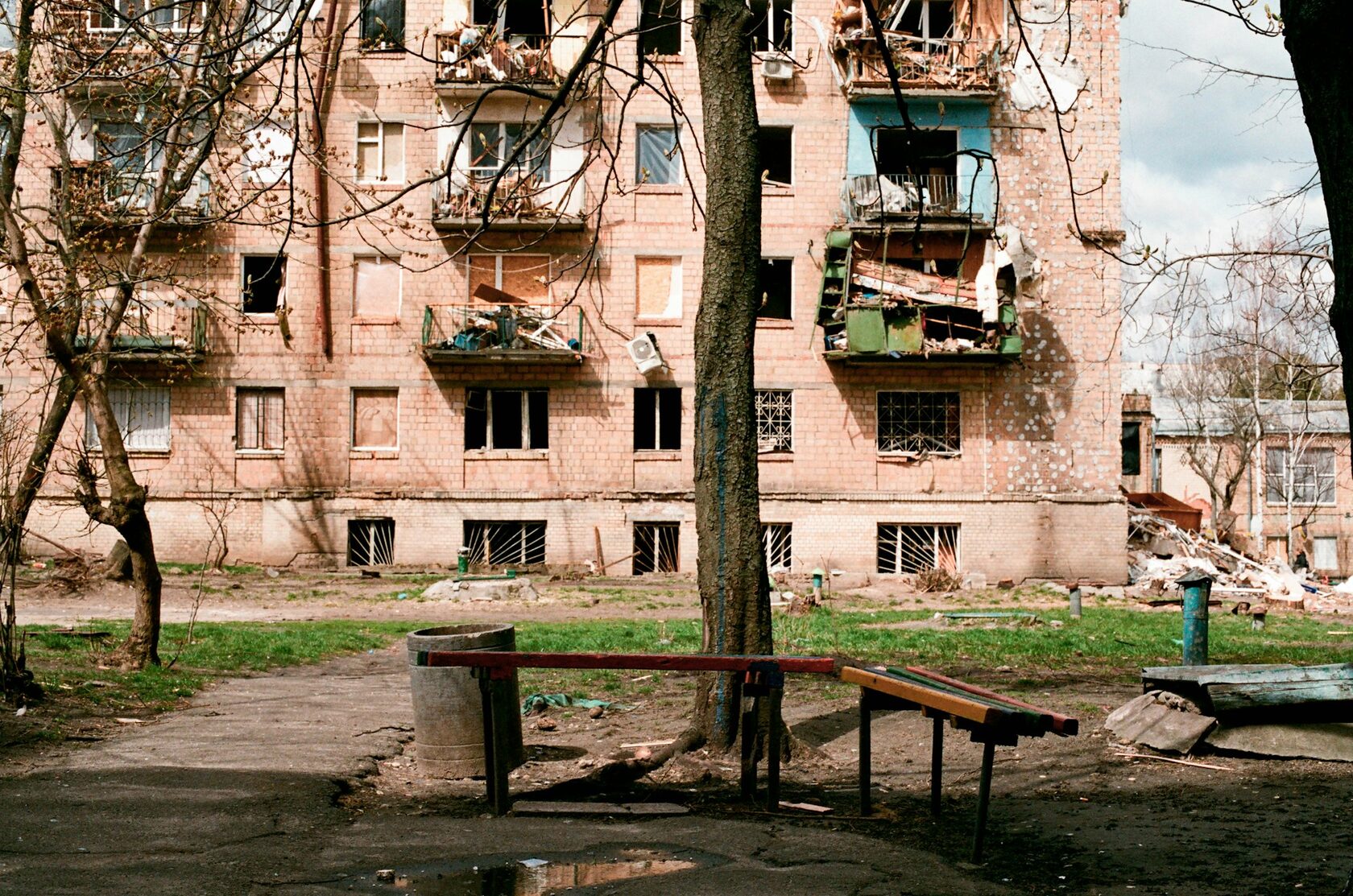Щоб прочитати цю статтю українською, будь ласка, пройдіть за посиланням
by Marika Semenenko
The article is based on the discussion,
the video of which you can find and watch here on our website
The discussion took place on the heels of the Munich Security Conference with participants examining the United States’ recent break with shared European values and its condemnation of European democracies. With the start of the second Trump presidency, his administration has expressed admiration for the European far-right and called for an end to American support of Ukraine. US-Russia negotiations in Saudi Arabia and Trump’s latest public pronouncements make it abundantly clear: the United States completely reversed its narrative on the war in Ukraine and openly adopted the same talking points as Putin’s Russia. Worryingly, Europe could be on its way to a similar change in rhetoric should far-right forces come into power in several European countries. The Munich Security Conference showed the extent to which the far-right represents an existential threat to both Ukraine's survival as an independent sovereign state and European security as a whole.
In the three years since Russia launched its full-scale invasion of Ukraine, Ukrainian politicians have been adamant about the need for Europe to unite against Putin’s aggression. As the war continues, Ukraine has demonstrated time and time again that it stands as Europe’s bastion against Russian imperialism while defending Europe’s democratic principles. Since the 2013-2014 Revolution of Dignity, Ukrainians have put their lives on the line in order to join the European community, believing in the importance of human rights. Meanwhile, Europe has failed to unite and the consensus for supporting Ukraine is increasingly under threat. Solidarity with Ukraine has gradually given way for demands for negotiations with Putin. This erosion of support has culminated in Trump calling Zelensky a “dictator” and refusing to label Russia as an “aggressor”. Ukraine enters its fourth year of war facing a radically different political reality. While Europe is plagued by internal political turmoil, Trump is openly voicing his support for Putin’s regime. For Ukraine, the war against Russia, which began with support from Europe and the US, has turned into a conflict against Russia and its new allies in Washington and certain European countries.
Our guests discussed the following questions: How does Europe now relate to this war in Ukraine? What can European politicians do to help Ukraine in its struggle for sovereignty and democratic freedoms? What is the impact of an increasingly strong far-right on the lives of Ukrainian refugees in Europe?
Helmut Brandstätter, a member of the European Parliament from the Austrian “NEOS” party, opened the discussion by mentioning an eight-point plan on Ukraine developed by the new EP Committee for Democracy Shield that deals with election interference by foreign actors such as Elon Musk. According to Brandstätter, Europe needs to strengthen itself in order to defend its democratic order from meddling by Russia, China, and US social media moguls. Given current developments in Washington, he affirmed that “if necessary, the EU will stand with Ukraine without America”. Reiterating the position of the European Commission, Brandstätter came out forcefully in support of European unity on the international stage:
“We must tell Mr. Trump that you cannot deal with one of us; you must deal with all 27 European leaders. We will see if the EU is strong enough to unite. If we don’t speak with one voice, we will lose, which is a bad message for Ukraine. But for now, I am quite optimistic.”
The moderator of the discussion, Dietmar Pichler, founder of the Center for Digital Media Literacy and Disinfo Resilience Network, addressed all the participants on what should be done to ensure Ukraine is not silenced in the peace negotiation process.
The experts on the panel shared the view that it is imperative for Ukraine’s voice to be front and center in any peace negotiations. Dr. Alina Mozolevska, a researcher at the University of Helsinki’s Hub on Emotions, Populism, and Polarisation, described the US-Russia meeting in Saudi Arabia as a very troubling sign and expressed hope that the EU’s united position would ensure a more just negotiation process. Dr. Olena Fedyuk, a social anthropologist, gave an overview of the history of Ukrainian migration since independence and stressed their vulnerable position of Ukrainian refugees in receiving countries. Despite the challenges, Ukrainians have maintained resilient communities and solidarity networks, both domestically and abroad:
“It is very important to say that no matter what the government decides, this won’t end the struggle. People won’t give up at this point.”
Dr. Wolfgang Mueller, a historian and co-chair of the Austrian-Ukrainian Historical Commission, underscored that what happens within the next 12 months will shape the future for the next 15 years, particularly with regards to the rule of law in Europe.
On the issue of Ukraine’s position, Dr. Victoriya Sereda, a sociologist, touched on the often overlooked conflicting discourses on display at the peace talks. One of the discourses stems from the Soviet WWII narrative, which is picked up by Trump in his assertion that the US and Russia are two superpowers that can unilaterally decide over the sovereignty of neighbouring nations. This discourse completely ignores Ukraine as a political actor and evokes traumatic memories of subjugation and occupation among Ukrainians. In addition to the great power discourse, we are also observing the rise of an openly far-right discourse in the US, marked by the public display of the Hitler salute and the wearing of Nazi symbols.
“Regarding Ukraine, both discourses are merging and attempt to reject Ukraine's subjectivity. We don’t observe much response in Europe against this so far.”
Another very important issue evoked by Sereda was the precarious position of Ukrainian refugees who might find themselves in trouble with the rise of the far-right in Europe and the US.
Reacting to the far-right's rise, Dr. Olena Fedyuk reflected on some of the failings on the left. While some on the left refrained from standing in solidarity with Ukraine - out of opposition to Ukraine’s ties with the US, which they perceived as an evil capitalist power - the far-right did not hesitate to ally itself with Russia in the face of the left’s ideological apprehensions. Fedyruk argued:
“It is shocking to see that America is saluting Russia and openly allying with Russia in the face of worries and confusion on the left”
Fedyruk stressed the importance of cultural institutions in countering the global far-right, encouraging them to be more critical and aware. Since the start of the war, Ukrainians have resisted attempts by some European institutions to bring them to sit at the table with Russians. Ukrainians argued that such attempts would not bring reconciliation, but only retraumatize them. In a similar vein, Ukrainians launched campaigns against European film festivals that platformed Russian documentaries depicting pro-Russian perspectives on the war and victimizing Russian combatants. According to Fedyruk, cultural institutions must remain firm in their resistance.
Dr. Victoriya Sereda highlighted the danger of a US-Russia alliance providing media support to the far-right in Europe, through both American and Russian media outlets. She warned that Europe lacked the resources to support a united front against such an onslaught. Sereda stressed the negative impact of far-right anti-migrant narratives on the lives of displaced Ukrainians. She underlined that Ukrainian refugees are particularly vulnerable because their special protection status as a group is much easier to rescind than those of individual refugees. In order to prevent such a scenario, Sereda argued for increased activism on the issue.
“It is important to be politically active and be involved with local governments to advocate for the rights of different groups, including Ukrainians.”
On the topic of far-right populism, Dr. Alina Mozolevska shared the results of a recent study she had participated in, which compared discourses during electoral campaigns in different European countries. Mozolevska underscored that negative emotions were always much easier to capitalize on, resulting in the mobilization of hate during political campaigns. Worryingly, she pointed out that the research team noticed a lot of overlap between negative emotions triggered by internal European issues and narratives being pushed by Russian propaganda. In other words, the far-right uses Russian propaganda narratives to legitimize its discourse with regards to internal European issues.
Beyond social media, Sereda highlighted the role of academia in pushing certain narratives. For example, she noticed that victim-blaming narratives that made Ukraine responsible for Russia’s invasion often came from well-known publishing houses and academic journals.
Dr. Wolfgang Mueller commented on the proliferation of self-appointed experts in Europe who produced counter-narratives without any specific expertise:
“Unfortunately, their voices are very present in the media. They polarise public opinion.”
One more crucial issue raised by the audience and discussed by the participants was the importance of looking at the war in Ukraine through a colonial perspective.
Dr. Wolfgang Mueller admitted that European scholars have tended to look at Ukraine through a Russian prism since the 1990s. Little has changed in the European educational system since Ukrainian independence in this regard. Therefore, Ukraine is fighting to be perceived as a sovereign subject in peace talks and also pushing against the perception of post-Soviet countries as a homogeneous space lumped under the “Russia” label.
Dr. Olena Fedyuk added that Europe now has a historic opportunity to review and rethink its neocolonial perspectives.
Sereda identified the Cold War as the source of these narratives, a time when the USSR was perceived as the only viable alternative to the West. As a result, those today with strong anti-Western sentiments, such as political forces on the left and former Western colonies in Africa and Asia, may continue to mistakenly interpret Russia as an anti-colonial power.
The very notion that Russia has the right to have its zones of influence is a colonial narrative, according to Mozolevska. Trump’s claim that Russia has the right to annex Ukrainian lands by military conquest is part of the same kind of colonial thinking.
In conclusion, our guests shared their vision of what should be done to support Ukraine, resist Russian military aggression, and ensure European security.
Everyone underlined the urgent need for Europe to unite and, as Mozolevska put it, work together in the fight against Russia. She stressed the need for increasing Ukraine’s visibility through cultural and educational initiatives. In this regard, collaborative projects that unite host communities and representatives of Ukrainian communities could be particularly helpful.
Experts also need to play an active role in this common struggle. Fedyruk concluded by arguing that we are entering unprecedented times when nobody can afford to stand on the sidelines. She called on everyone to mobilize and do whatever is in their power.
Wolfgang Mueller stressed that Ukraine had been defending Europe for three years, so now it is Europe’s turn to defend Ukraine.
Victoria Sereda concluded with a powerful statement:
“We shouldn’t be afraid of stepping outside of our comfort zones. Ukrainians made it through many protests and struggles for the future of the country. Ukrainians did not give up 3 days into the war as some had expected. In Europe and the US, we are experiencing more and more polarisation. If we’re unable to unite, we might lose the opportunity to get important things done due to people turning against one another”.






